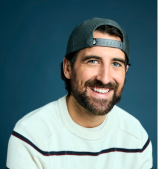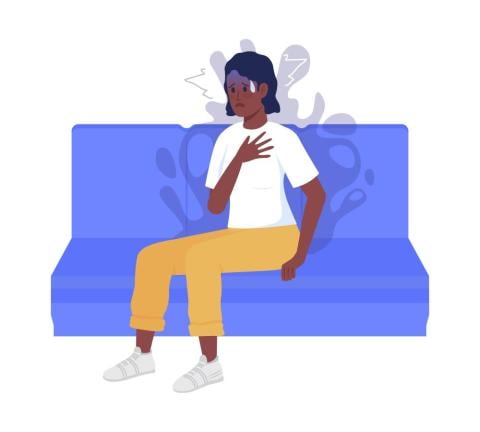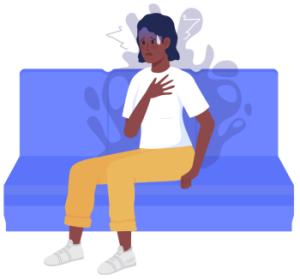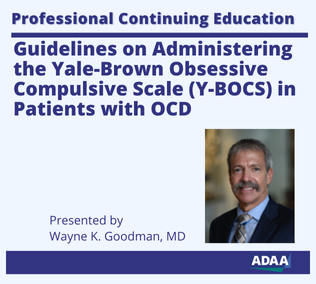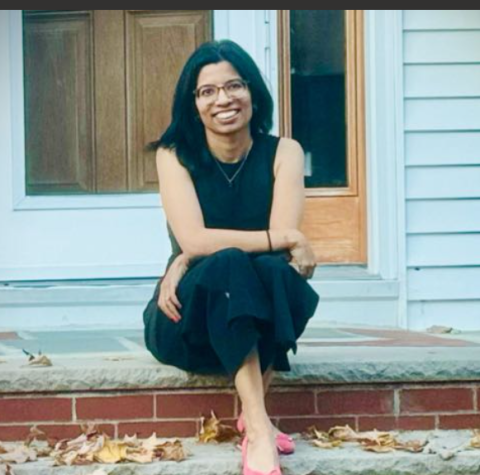From Silent Suffering to Speaking Up: A Journey of Self-Advocacy in Mental Health
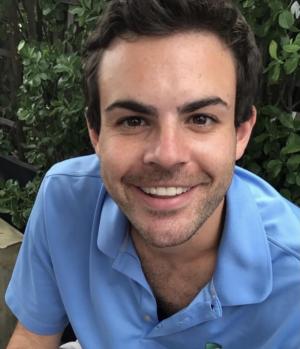
In 2011, my acceptance to Penn State University marked what should have been the beginning of an exciting chapter. Instead, it became the first page of a different story – one about learning to advocate for myself while battling obsessive-compulsive disorder (OCD).
During my senior year of high school, I had struggled with OCD but pushed forward, believing I could overcome it through sheer determination. However, the uncertainty of college life intensified my symptoms until they became unbearable.
Questions that might seem manageable to others consumed my every waking moment. What career path should I choose? Why did I make certain decisions? The need for absolute certainty paralyzed me, making daily functioning nearly impossible. Despite my deteriorating condition, I struggled to communicate the severity of my situation to my family. It wasn't until I walked six miles through a blizzard to check myself into a hospital that they finally understood the gravity of my condition.
This moment marked my first real act of self-advocacy – a desperate but necessary step that changed everything. My parents and I consulted six different doctors before discovering McLean Hospital's OCD Institute (OCDI). Through this experience, I learned a crucial lesson: finding the right treatment often requires persistence and the courage to keep seeking help until you find what works for you.
At OCDI, I underwent intensive exposure and response prevention therapy (ERP). For eight hours daily, I faced my fears head-on while learning to sit with uncertainty. The process wasn't easy, but it taught me something invaluable: how to be my own strongest advocate. I learned to communicate my needs clearly, question treatment approaches when necessary, and take an active role in my recovery.
After residential treatment, I began working with Dr. Fred Penzel, who helped me challenge my fears even further. His approach wasn't always comfortable, but it was exactly what I needed. This experience taught me that effective self-advocacy sometimes means choosing what's beneficial over what's comfortable.
My journey continued at Suffolk County Community College, where I maintained a 4.0 GPA, before transferring to the University of Richmond. There, I threw myself into research opportunities, tutoring, and campus leadership roles. Each step required me to push beyond my comfort zone and advocate for new opportunities.
Today, as a third-year clinical psychology PhD student, I've transformed my personal struggle into a professional mission. My research focuses on breaking down barriers to mental health treatment and promoting better understanding of OCD. Speaking at the Annual OCD Conference in Chicago was a pivotal moment – sharing my story helped others while reinforcing the importance of vocal advocacy in mental health care.
What I've learned about self-advocacy in healthcare settings is invaluable: it's crucial to research treatment options thoroughly, communicate needs clearly, and maintain boundaries while building a strong support system. Sometimes, this means having difficult conversations with family members who may not initially understand. Other times, it means questioning healthcare providers and seeking second opinions.
The journey from suffering in silence to speaking up wasn't linear. It required learning to balance family concerns with personal autonomy, developing the confidence to assert myself in medical decisions, and building a network of supporters who respected my healthcare choices. Most importantly, it taught me that effective self-advocacy isn't just about speaking up – it's about speaking up strategically and persistently.
Looking back, I wouldn't change anything about my journey. Every challenge has shaped my understanding of mental health advocacy and informed my current work in reducing stigma and improving access to mental health care. I've learned that uncertainty isn't just something to be tolerated – it's an inevitable part of life that can lead to growth and discovery.
I chose to share my story because I know firsthand how isolating mental illness can feel. Without the tremendous support and expert care I received throughout my treatment journey, I wouldn't be where I am today – pursuing a Ph.D. in clinical psychology and working to help others. I learned that recovery is possible with the right help and resources. Too many people suffering from mental illness suffer in silence, believing they're alone in their struggles or that their condition is untreatable.
By sharing my journey, I hope to show others that there is hope and help available. Every time someone reaches out to tell me my story touched them – like those emails I received after speaking at the OCD Conference – I'm reminded of why sharing these experiences matters so much. Our stories have the power to break down stigma, inspire hope, and show others that they're not alone on this journey.
My message to others navigating similar challenges is clear: your voice matters. Whether you're seeking treatment, explaining your needs to family members, or making decisions about your care, self-advocacy is your most powerful tool. As I continue my work in clinical psychology, I remain committed to helping others find their voice and navigate their own paths to recovery.
Remember, the goal isn't to eliminate uncertainty – it's to learn to move forward despite it, armed with the knowledge that you are your own best advocate.
Jonathan was interviewed on The OCD Family Community podcast. Listen to the episode here.
Share Your Story and Voice and Help #breakthestigma Around Mental Health
- Support ADAA's Mission - Every Gift Makes an Impact
- Join an ADAA Online Peer to Peer Support Community
- ADAA Find Your Therapist


